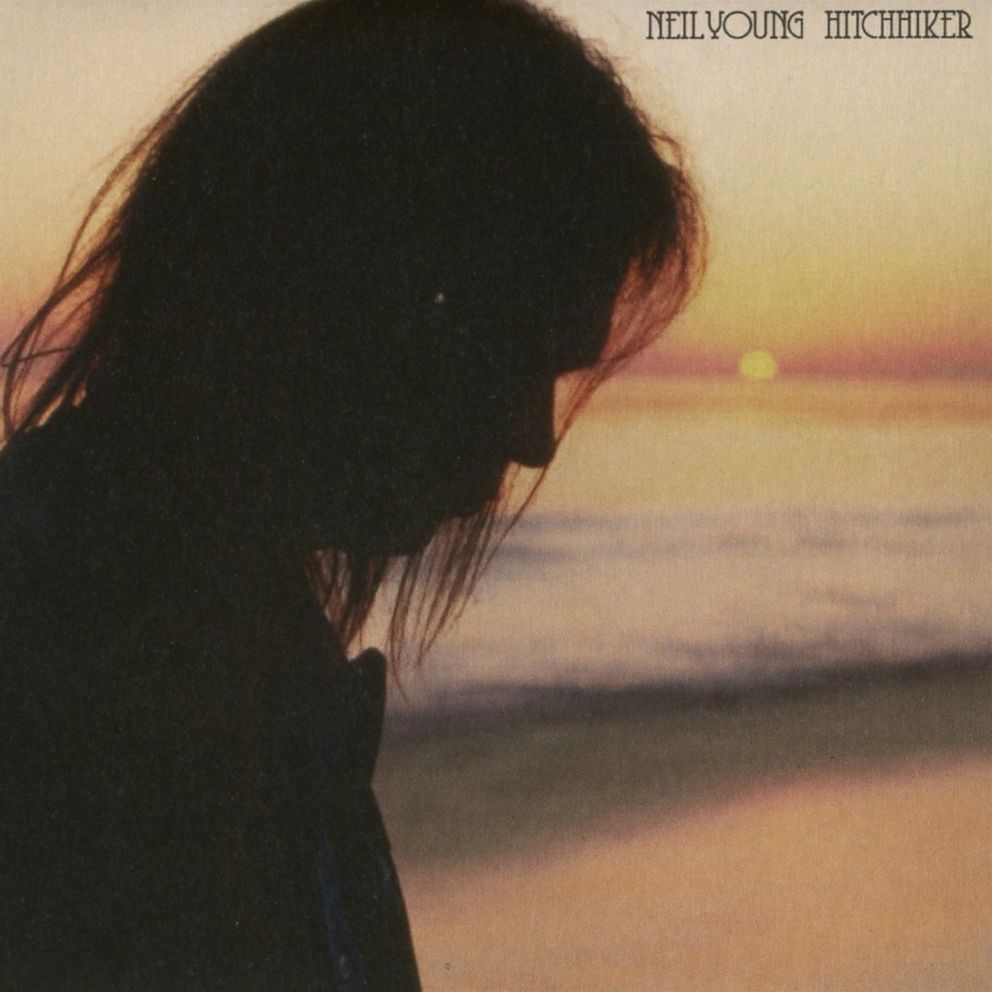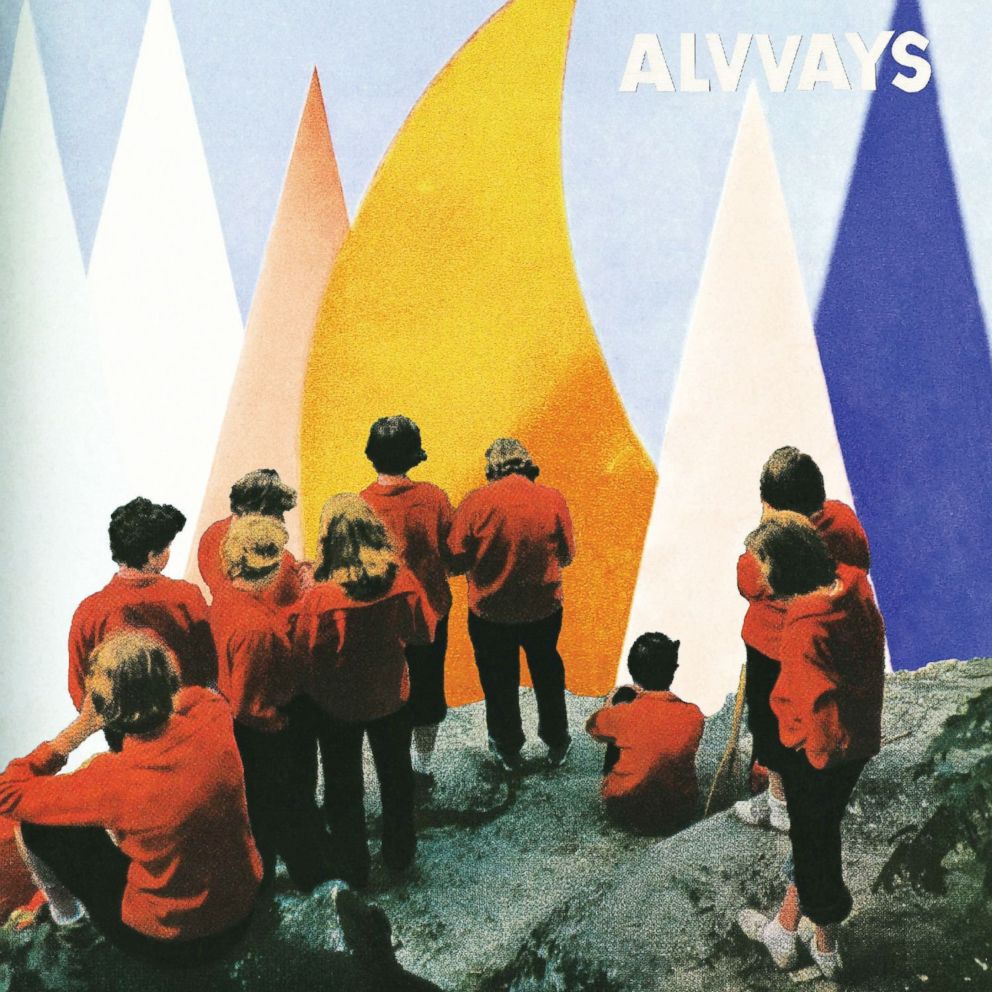Why Neil Young’s 'lost' album 'Hitchhiker' would have been a classic
Plus, get reviews of the latest albums from The National, Tori Amos and others.

— -- This week shape-shifting hard-rockers Living Colour release their first full-length album in eight years, Tori Amos drops album No. 15, Neil Young releases a previously unavailable set from 1976, indie-rockers Alvvays release their second album, buzz-bin-favorites Toadies make a hard-charging return and critically-acclaimed band The National give us their first album in four years. It is a heavily-packed list full of many favorites. Not one dud among them! Buckle yourself in and keep reading. There’s plenty to enjoy in this round of releases.

Neil Young’s “Hitchhiker”
****
A “lost” album, recorded in one day in August of 1976, Neil Young’s “Hitchhiker” contains stripped-down performances of songs he would eventually put on other albums in different forms. For instance, “Pocahontas,” “Powderfinger” and “Ride My Llama” would all be later re-purposed on 1979’s “Rust Never Sleeps,” while the title-track wouldn’t resurface again until 2010’s amazing but underrated “Le Noise.” In fact only the laid back “Hawaii” and the determined “Give Me Strength” are songs that haven’t previously been released. Considering the depth on Young’s discography, this seems shocking, since these both seem like rather reliable songs.
Listening to “Captain Kennedy,” which would later appear on 1980’s “Hawks & Doves,” it’s amazing how much the riff kind of reminds me of Harry Chapin’s “Cats in the Cradle,” even if both songs have their own unique spins.
This album shows Young at his most natural. A mic, a guitar and his voice. You get the feeling he could still churn out songs in this fashion, but if you are a fan of Young’s epic, legendary discography, this is still a choice discovery.
“Hitchhiker” isn’t necessarily essential since the majority of these songs have been released in fuller versions over the years, but it provides an excellent supplement. The truth is, if this record had been released in 1976, it probably would now be considered a classic 41 years later.
Focus Tracks:
“Powderfinger” The song is reduced to its essence and at the same time, it still maintains its lyrical and melodic power. This is definitely an ace in Young’s song-book and this version is still powerful.
“Captain Kennedy” You can picture Young briskly keeping the rhythm with his foot as he tells this mariner’s tale.
“Campaigner” An edited version of this song appeared on the 1977 collection, “Decade.” In this strangely compelling ode, Young tells the story of a campaign in a world where curiously, “Even Richard Nixon has soul.”

Living Colour’s “Shade”
****
Amazingly, “Shade” is only Living Colour’s sixth studio album, coming 29 years after they burst onto the scene with their debut, “Vivid” and its now-classic lead-single, “Cult of Personality.” The album seamlessly combines funk and soul into a profoundly heavy, metallic framework. Corey Glover still commands the room with his lead vocals and Vernon Reid still can rip some of the most earth-shattering guitar-solos out of his pocket with a surprising level of frequency.
This is actually the band’s blues album. Always a group to incorporate unique spins on covers alongside originals, the band hands in righteous version of Robert Johnson’s “Preachin’ Blues” and Marvin Gaye’s “Inner City Blues.” Most amazing, though, is their re-imagining of the Notorious B.I.G.’s “Who Shot Ya,” a song which has a video peppered with gun-violence statistics. Ever since “Open Letter (to a Landlord)” the band has always been very conscious of their political platform and their ability to educate.
“Shade” is a forward-thinking, sonically-adventurous record that often throws musical conventions on their heads. “Come On,” and “Always Wrong” get surprisingly freaky for instance when some glitch-y, near-dub-step elements are thrown into the mix. It’s also great how the latter goes being ominous to beautiful at a moment’s notice. “Blak Out” is a blistering bit of funk, while “Program” makes excellent use of a shout-out clip from rapper Scarface.
History is also an important touchstone on this record. Listen to “Pattern in Time” and look at the picture in the liner-notes of the shrine left for Eric Garner with the phrase “I Can’t Breathe” written in clear letters. Living Colour never cease to amaze and they never come unprepared to both rock and inform the crowd. The simmering blues riff that begins “Who’s That” is just one of the key bits of evidence as to why this album stands out. In these politically-tense times, the members of Living Colour have come back to breathe new life into the blues and offer up some explosive energy along the way. “Shade” is indeed a very welcome return of one of America’s most inventive and genre-bending rock bands.
Focus Tracks:
“Always Wrong” This is a single waiting to happen since it works with an ever-shifting, eclectic backdrop. Here Glover, Reid, drummer Will Calhoun and bassist Doug Winbush work as a cohesive, ever-changing unit.
“Blak Out” A soulful, funky, bass-driven workout that morphs in and out of being a wonderfully destructive metallic romp.
“Who Shot Ya” A radical and welcome reinvention. Hopefully Biggie would appreciate what the band has done here.

Tori Amos’ “Native Invader”
****
Fifteen albums in and Tori Amos is reliable as ever, and her songs, while still working her original core appeal sound, are getting more nuanced and orchestral in their approach. “Native Invader,” as expected, is another sharp, witty collection of songs fueled by her cryptic lyrics that mix mystical and religious imagery. It’s actually hard to gauge what era of her career this is from, since songs like “Cloud Riders” and the bluesy “Up the Creek” simmer with her signature sound.
“Chocolate Song” is both beautiful and quirky, whereas “Climb” ranks among Amos’ best work even if conventional wisdom might make you think that its name should be “St. Veronica.” “Bang” pounds with a defining force, with its imagery that includes immigrants, crucifixion and various lists of elements from the periodic table. It’s hard not to see this track as a direct response to the Trump administration and the current political climate. Even the album’s title itself hints at this association.
Opener “Reindeer King,” is an expansive, moody, modal piece, lasting seven minutes and showing Amos at the peak of her powers, while “Broken Arrow” makes excellent use of a sultry wah-wah-infused guitar-line. At a point in her career when you could expect her to call it in, Amos is still packed with delicately-executed songs with real meat in their construction.
If you’ve been a fan of her work, and perhaps have not been paying attention to her last few releases, “Native Invader” is an excellent album for you to jump back aboard.
Focus Tracks:
“Reindeer King” If for a moment you doubt Amos’ enduring drive as an artist, right from the start of the album, with this extended, flowing ballad, she firmly re-plants her roots into the ground, putting her signature charms overtly on display. It’s closer to an orchestral exercise than alt-rock, but that shouldn’t be a surprise.
“Chocolate Song” A song as beautiful as the treat it is named for, this is a slow-burning possible single full of engaging textural choices.
“Climb” So many details are in this song, as Amos urges someone to “Climb over the church wall.” She mentions a koi pond and paints a vivid scene and establishes a strong narrative framework. It’s almost as if she’s crafted a tight, short-story into a sweeping song.

Alvvays’ “Antisocialites”
****1/2
The second album by Canadian fuzz-poppers Alvvays is a compact masterpiece of sorts. Building off of the sound they established with their 2014 self-titled effort, this album is a tighter, brighter affair finding lead singer Molly Rankin sharpening her approach. When you hear a commanding banger like “Plimsoll Punks” or something as dreamy as the opener, “In Undertow,” there is a feeling that the band has really pinpointed their sound. Even the happy, synth-led “Dreams Tonite” somehow sounds simultaneously relaxed and focused.
Rankin continues to be a rising star as well and is able to rock and deal with more sedate material with equal measure. Considering that she comes from a famous family of Celtic-folk musicians, (“The Rankin Family” who are known and revered in Canada) her emergence and knack for indie-rock is especially interesting. When the band churns out a corker like “Saved by a Waif,” the music’s insistence is undeniable.
Alvvays definitely dodge the "sophomore slump.” “Sophomore leap” is more like it. If they earned themselves fans with singles like “Archie, Marry Me” and “Adult Diversion,” they are going to keep those fans with this buzzy, pop-y, churning, sometimes Farfisa-fueled collection.
“Antisocialites” is a winning album, full of rock fuzz and delicate touches that somehow don’t come off as precious. The outro on “Plimsoll Punks,” for instance, sounds dusty and classically-minded and yet it doesn’t sound out of place next to the thundering boom of “Your Type.” This is a compact, eclectic, well-assembled record that should create Alvvays some key buzz.
Focus Tracks:
“Dreams Tonite” One of the album’s more subtle offerings and yet it has strong pop appeal and licensing potential. There’s a breezy, welcoming vibe here.
“Plimsoll Punks” This is a strong rave-up but it is also densely-packed with a lot intriguing and catchy melodic turns.
“In Undertow” The album’s defining and soaring opener with its equally-appealing (surprisingly) shoegaze-y music video. This is quite a stunning piece that gets better with each spin.

Toadies’ “The Lower Side of Uptown”
****
If you remember the nineties, no doubt you remember the Toadies’ omnipresent rock single, “Possum Kingdom” and its accompanying album, “Rubberneck,” which gave the band a handful of other “modern rock” hits. At the beginning of their career, they were a little slow to follow-up each release, but since album number three, 2008’s “No Deliverance,” they have released a steady stream of records, often veering towards the harder side. Although their last effort, 2015’s “Heretics” contained mostly acoustic readings of some of their better known songs.
“The Lower Side of Uptown” is a hectic, often brutal rock record with leader Vaden Todd Lewis often bellowing and yelling. No doubt the astounding “Polly Jean” is some sort of tribute to PJ Harvey, given its stylistic similarity to some of her earlier, rocking work. Even when Lewis is working a gnarly blues riff on “You Know the Words,” or singing more softly on “Mama Take Me Home,” he sounds like something rather sinister might be up his sleeve, which works as the track progresses and becomes heavier.
Toadies’ sound definitely hasn’t dulled with age. Lewis, along with drummer Mark Reznicek, bassist Doni Blair and guitarist Chuck Vogeler have worked themselves into a heavy, commanding outfit. Instead of mellowing out in the name of possible pop airplay, one could easily argue that not only have they maintained the same brand of nineties grunginess that made them initially famous, but they’ve also possibly become even heavier. “Keep Breathing” is formidable in its aggressiveness and there’s something unsettled just under the surface of “Amen.”
If you are looking for a hard-hitting, gutsy rock record that still maintains some catchiness, Toadies continue to deliver. This sonic pounding will make most of their still-standing nineties buzz-bin associates’ current output seem muted by comparison. Throughout “The Lower Side of Downtown,” Toadies keep their hard-rocking drive intact.
When “Broke Down Stupid” goes from a bluesy workout to something magnetic and explosive, the sudden turn isn’t a shock. As a vocalist, Lewis can still caterwaul with the best of them. In fact, when he shouts, it acts like a shot of sonic adrenaline. Their fitting cover of Screamin’ Jay Hawkins’ “I Put a Spell on You” makes perfect sense.
“The Lower Side of Uptown” may very well be the pummeling rock statement you didn’t know you needed.
Focus Tracks:
“Polly Jean” If this is some sort of Harvey tribute, it sounds like perhaps it is a response somewhere between “50ft Queenie,” and “Man-Size” with its firm, hard blues-anchoring.
“When I Die” Lewis’ powerful yelp holds this similarly hard slice of blues firmly in place. Given that this is the set opener, it serves as a fitting start to the collection.
“Mama Take Me Home” This starts out deceptively like a folk ballad then quickly rocks out as Lewis and company show their range. Had they dropped this song on “Rubberneck,” in 1994, it probably would have become a radio hit.

The National’s “Sleep Well Beast”
****
Seven albums in and The National’s biggest asset is still their subtlety. While opener “Nobody Else Will Be There” creeps in like a slowly-floating ghost, it still sets an entrancing spell. Sure, on the second song, “Day I Die,” the band rocks out thanks to a driving “Funky Drummer”-style beat, but then again lead singer Matt Berninger still maintains a low-key yet authoritative vocal-tone on the more powerful side of deadpan.
Like most of the band’s albums, “Sleep Well Beast” may take a few spins, but this is a diverse collection, from the synth-driven, half-spoken-word churn of “Walk it Back” to the dirty, surf-metal funk of “Turtleneck.” On “The System on Dreams in Total Darkness,” there’s an unhinged sensibility where you aren’t sure if the piano-line or the guitars will attack next.
Still, there is something very mannered about this album. It is very focused in a commanded way. Even if they sound more malleable and flexible than ever, Berninger’s voice keeps them grounded. While earlier records were often defined by his mutter, over the years, The National have been slowly revealing their rockier aspirations. Berninger definitely lifts his voice more often than he used to and is aiming more for pop hooks more overtly than he did back on “Alligator” or “Boxer.” He manages to milk some soulful energy from the piano-led “Born to Beg,” while “Empire Line” has a signature that sounds like it could be worked into a club remix.
The National have long been critically-hyped but “Sleep Well Beast” delivers. With each album, they are getting increasingly accessible, or at least more interesting, from the skittering techno of both the title-track and “I’ll Still Destroy You” to the glitch-tastic piano-led “Guilty Party.”
Even when given a quick pace, Berninger still often sounds like he’s crooning a ballad. Perhaps it is why even when the musicianship is in your face, the band still seems casually understated. Of course, it helps that subject-wise, in spite of the sonic pep, this is a bit of a downer of a record.
“Sleep Well Beast” finds The National continuing their well-earned rise. This album may not be for everyone, but it is full of so many details that it easily deserves a number of listens. It’s a record that ideally needs to be lived with and firmly explored.
Focus Tracks:
“Day I Die” An amazing burst of a song. Berninger wrote the lyrics of this album with his wife, Carin Besser. The fact that this song and many others elude to marital strife makes it an even more compelling exercise. If this narrative-thread is true-to-life, hopefully this helped the two find their way. He asks, “The day I die / Where will we be?” I’m sure many couples frequently ask themselves the same question and hope for the best.
“Carin at the Liquor Store” This song’s title personalizes it. An appealing piano ballad that is part love-song and an admission of blame. A stunning track, no matter how you slice it.
“The System Only Dreams in Total Darkness” The lyrics sound like an argument. The music is equally chaotic but playfully orchestrated to build some compelling textures.
Coming Up: New music from Foo Fighters and more.
Missed the last installment? Get the details of Jack Johnson's new album.




